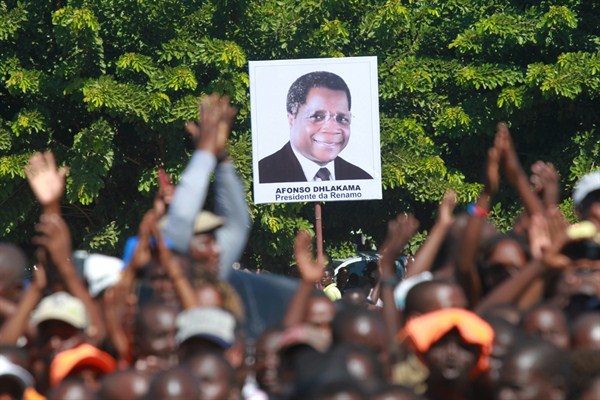On May 3, Afonso Dhlakama, the long-time leader of the Mozambican rebel group and later political party Renamo, died unexpectedly. His death came as Mozambique’s National Assembly was considering amendments to the country’s constitution that would extend elected government to provinces, districts and municipalities nationwide. Most administrations at these levels are currently appointed by the national government, a cause of tension in Renamo strongholds.
The amendment was one of two pillars of a deal negotiated earlier this year by Dhlakama and President Filipe Nyusi, meant to end a low-intensity conflict that flared back up in 2012—20 years after the end of Mozambique’s civil war—and dragged on until a fragile truce was struck in 2016 and extended in 2017. The second concerns the integration of some Renamo fighters into state defense and security forces and the reintegration of others into civilian life.
Dhlakama’s death raises questions about the peace deal, the future of Renamo as a political party, and the prospects for Mozambique’s 25-year experiment in democratic politics since its civil war.

